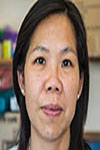Cultural battle over cancer: Challenges for promoting cancer screening among immigrant women
 By Dr Cannas Kwok, School of Nursing and Midwifery, Western Sydney University, Australia.
By Dr Cannas Kwok, School of Nursing and Midwifery, Western Sydney University, Australia.
Although the concept of taking preventive measures including cancer screening is well established in Australia, assimilation into this concept may be a challenge for women from culturally and linguistically diverse (CALD) backgrounds. For women from CALD background, cancer is constructed within the social and cultural context. Some Asian women, like Korean and Chinese, perceive breast cancer is a shameful disease because it can imply that the victim has been guilty of immoral behaviours. It follows from this belief that undergoing mammography held implications for modesty and moral behaviour. If they had been sexually virtuous they did not see themselves at risk of breast cancer and they did not want to create the wrong impression (Kwok et al. 2006a).
Fatalistic attitudes towards cancer is another example and this is particular prominent in African, Asian and Arabic culture. Studies reveal that fatalism in African’s context was defined as a combination of fear and avoidance. Breast cancer, or any form of cancer, was seen as a death sentence. Having this mind, African women perceived that early detection by means of screening will make no difference in the outcome and they do not want to think about it when they are asymptomatic (Ogunsiji et al., 2017). Similarly, Chinese women believe negative thinking brings negative thoughts. Many believed that thinking about cancer would cause it to develop. They perceived direct references to cancer as taboo and an indication of bad luck. Following this line of thinking, cancer screening is viewed as “looking for trouble” rather than as a preventive tool (Kwok et al., 2006).
Although Australia is being a multicultural society and endeavours to provide comprehensive cancer services and support to cancer patients, they are designed based on mainstream culture. Our research team was very delighted that the culturally sensitive cancer promotion programs could do something meaningful for this group of women who have been left behind in our health care system (Kwok et al., 2016). Being an oncology nurse and also a researcher in the cancer area, we feel vulnerable when it seems there is not much we can do to help cancer patients whose needs are not met. We believed that the success of the program has important implications for providing culturally sensitive cancer support services and cancer care for women from CALD background in Australia.
References
Kwok, C., & Lim, D. (2016) Evaluation of a culturally tailored education to promote breast and cervical cancer screening among Chinese-Australian women. Journal of Cancer Education, 31(3), 595-601.
Kwok, C. & Sullivan, G. (2006). The influence of traditional Chinese beliefs on cancer screening behaviours among Chinese-Australian women. Journal of Advanced Nursing, 54(6), 691-9.
Kwok, C., Sullivan, G. & Cant, R. (2006a). The role of culture in breast health practices among Chinese-Australian women. Patient Education and Counselling, 64(1-3), 268-276.
Ogunsiji, O. ,Kwok, C., Lee, F. 2017. Breast cancer practices of African migrant women in Australia: A descriptive cross-sectional study. BMC Public Health, 17(1): 32.
February 2018
Mobile options:

